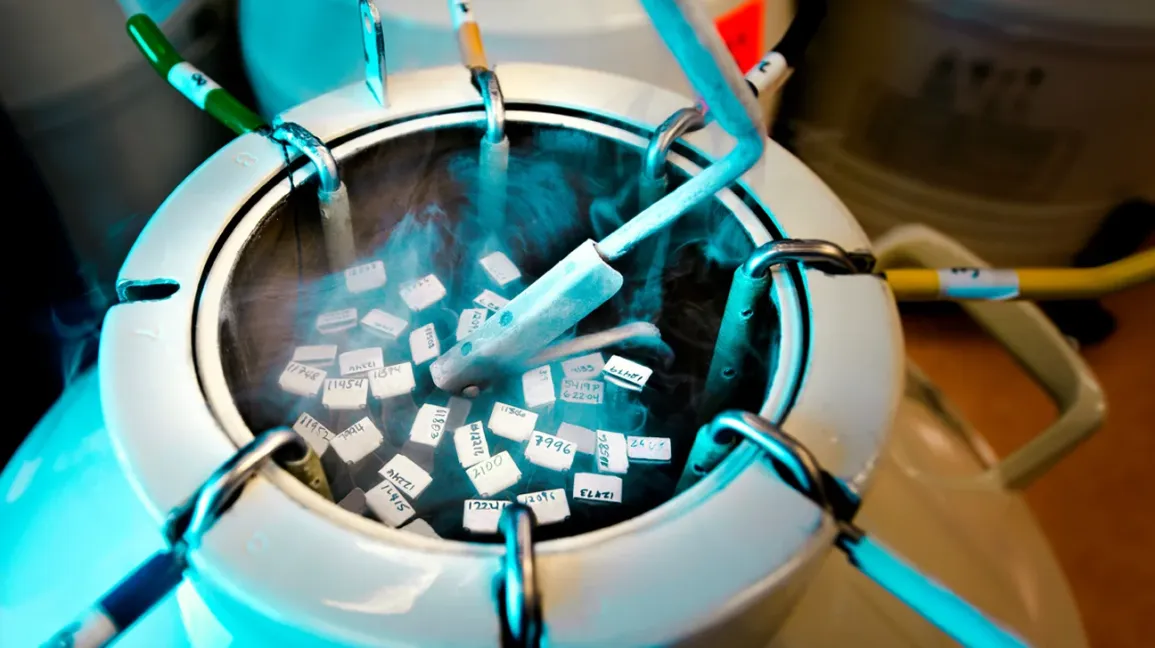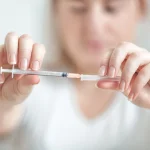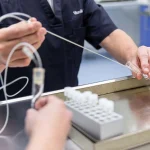Improving Sperm Health Before IVF: What You Need to Know
If you and your partner are preparing for in vitro fertilization (IVF), you may be wondering, “How to increase sperm quality for IVF?” While IVF is often associated with women’s fertility, male reproductive health plays an equally important role. The quality of sperm directly affects fertilization success, embryo development, and even pregnancy outcomes.
Fortunately, sperm quality can often be improved through simple lifestyle changes, medical interventions, and consistent healthy habits. Whether you’re dealing with a low sperm count, poor motility, or abnormal morphology, taking proactive steps can significantly enhance your chances of IVF success.
This guide explains what affects sperm quality, how to improve it naturally, and what fertility experts recommend before starting IVF treatment.
Why Sperm Quality Matters in IVF

Sperm quality refers to how healthy and functional a man’s sperm cells are, including how many are present, how well they move, and how normal they look. These factors are collectively known as sperm parameters and are measured in a semen analysis.
Key components of sperm quality include:
- Count: The number of sperm in the semen sample.
- Motility: The ability of sperm to swim efficiently toward the egg.
- Morphology: The shape and structure of the sperm.
- DNA integrity: The health of genetic material within the sperm cell.
During IVF, the sperm’s job is to fertilize the egg and contribute half of the embryo’s DNA. When sperm quality is low, it can lead to failed fertilization, poor embryo development, or early miscarriages. That’s why optimizing sperm health before IVF is so important.
What Affects Sperm Quality
A variety of lifestyle, environmental, and medical factors can influence sperm health. Understanding these helps identify what changes to make before IVF.
- Age: Sperm quality gradually declines after age 40 due to DNA fragmentation and reduced motility.
- Lifestyle habits: Smoking, heavy drinking, poor diet, and lack of exercise can damage sperm cells.
- Heat exposure: Frequent use of saunas, hot tubs, or tight clothing raises scrotal temperature, which can harm sperm production.
- Stress: Chronic stress affects hormone balance and testosterone levels.
- Environmental toxins: Exposure to pesticides, heavy metals, or chemicals (like BPA) can impair sperm production.
- Medical issues: Varicoceles, infections, or hormonal imbalances can reduce sperm quality.
Most of these factors are manageable, and even small improvements can have a big impact over time.
1. Maintain a Balanced, Nutrient-Rich Diet
A healthy diet is one of the best ways to boost sperm quality. Nutrients that improve sperm production and DNA integrity include:
- Zinc: Essential for testosterone production and sperm count (found in meat, pumpkin seeds, and shellfish).
- Vitamin C and E: Antioxidants that protect sperm from oxidative damage.
- Folate: Helps support healthy sperm formation.
- Omega-3 fatty acids: Improve sperm motility and morphology.
- CoQ10: Enhances sperm energy and overall fertility potential.
Aim for a diet high in fruits, vegetables, whole grains, lean proteins, and healthy fats. Limit processed foods, added sugars, and fried items that contribute to inflammation.
2. Exercise Regularly — But in Moderation
Moderate physical activity helps regulate hormones, improve blood circulation, and reduce stress, all of which support healthy sperm production.
Aim for 30–45 minutes of exercise, five times a week, focusing on aerobic activities like walking, swimming, or cycling. However, excessively high-intensity workouts or heavy weightlifting can increase oxidative stress and temporarily lower testosterone, so balance is key.
3. Avoid Smoking and Limit Alcohol
Smoking damages sperm DNA and reduces both count and motility. Even light smoking can significantly affect sperm morphology.
Excessive alcohol consumption can also lower testosterone levels and increase estrogen, interfering with sperm production. For optimal results, quit smoking entirely and limit alcohol intake to no more than one or two drinks per week while preparing for IVF.
4. Manage Stress Levels
Chronic stress raises cortisol levels, which can suppress testosterone and impair sperm production. Stress can also contribute to unhealthy lifestyle habits like poor sleep or overeating, which indirectly affect fertility.
Try relaxation methods such as meditation, yoga, breathing exercises, or spending time outdoors. If stress feels overwhelming, talking to a counsellor or joining a fertility support group can also help.
5. Get Enough Sleep
Sleep plays a critical role in hormone regulation. Inconsistent or poor-quality sleep can lead to decreased testosterone production and lower sperm count.
Aim for 7–8 hours of sleep per night, and try to maintain a consistent bedtime schedule. Avoid using electronic devices right before bed and reduce caffeine in the evening to improve sleep quality.
6. Keep Cool — Literally
Sperm thrive best at slightly cooler temperatures than the rest of the body. Prolonged heat exposure can damage developing sperm cells.
To protect sperm health:
- Avoid sitting for long periods with a laptop on your lap.
- Skip hot tubs and saunas while trying to conceive.
- Wear loose-fitting, breathable underwear.
Even small adjustments can help improve sperm production over time.
7. Consider Taking Fertility Supplements
Fertility supplements can help fill nutritional gaps and improve sperm quality. Popular options include:
- Coenzyme Q10 (CoQ10): Improves sperm motility and count.
- L-Carnitine: Supports sperm energy and movement.
- Zinc and Selenium: Essential for testosterone and sperm development.
- Vitamin D: Low levels have been linked to poor sperm motility.
- Antioxidants: Reduce oxidative stress in sperm DNA.
Always consult your fertility specialist before starting supplements to ensure safe and effective dosages.
8. Get Tested and Treat Underlying Conditions
Sometimes, poor sperm quality is due to medical issues that require treatment. Common examples include:
- Varicocele: Enlarged veins in the scrotum that affect temperature and sperm production.
- Hormonal imbalance: Low testosterone or high estrogen can affect sperm count.
- Infections: Untreated infections can damage reproductive tissues.
A fertility specialist can perform tests to diagnose these issues and recommend treatments such as surgery, medication, or hormone therapy.
How Long Does It Take to Improve Sperm Quality?

Sperm production takes about 70 to 90 days, meaning it takes roughly three months for lifestyle changes to show measurable results.
If you’re planning IVF, it’s best to start improving your sperm health at least three months before the procedure. This ensures your body has time to produce stronger, more viable sperm for fertilization.
Can Poor Sperm Quality Still Lead to Successful IVF?
Yes, but with assistance. Modern IVF techniques, especially Intracytoplasmic Sperm Injection (ICSI), can help overcome sperm-related infertility.
In ICSI, a single healthy sperm is injected directly into an egg, bypassing the need for the sperm to swim or penetrate on its own. This approach has made IVF successful even in cases of low sperm count or motility.
However, better sperm quality still increases the likelihood of fertilization and healthy embryo development, making pre-IVF preparation worthwhile.
Final Thoughts
If you’re asking how to increase sperm quality for IVF, the key lies in consistency. Simple but meaningful lifestyle changes, such as improving diet, managing stress, getting enough sleep, and avoiding harmful habits, can make a real difference in sperm health and IVF success.
Remember, sperm regeneration takes time, so start early and stay committed. Both partners play an active role in fertility, and focusing on male health is a vital part of the journey toward parenthood.
At The Bridge Clinic, we provide comprehensive fertility care for both men and women. Our IVF specialists can assess sperm health, recommend personalized improvement plans, and use advanced technology like ICSI to maximize your chances of success.
Contact The Bridge Clinic today to schedule your consultation and take the next step toward a healthy, successful IVF journey.
Follow us on our social media channels below:
Explore our related articles below:








